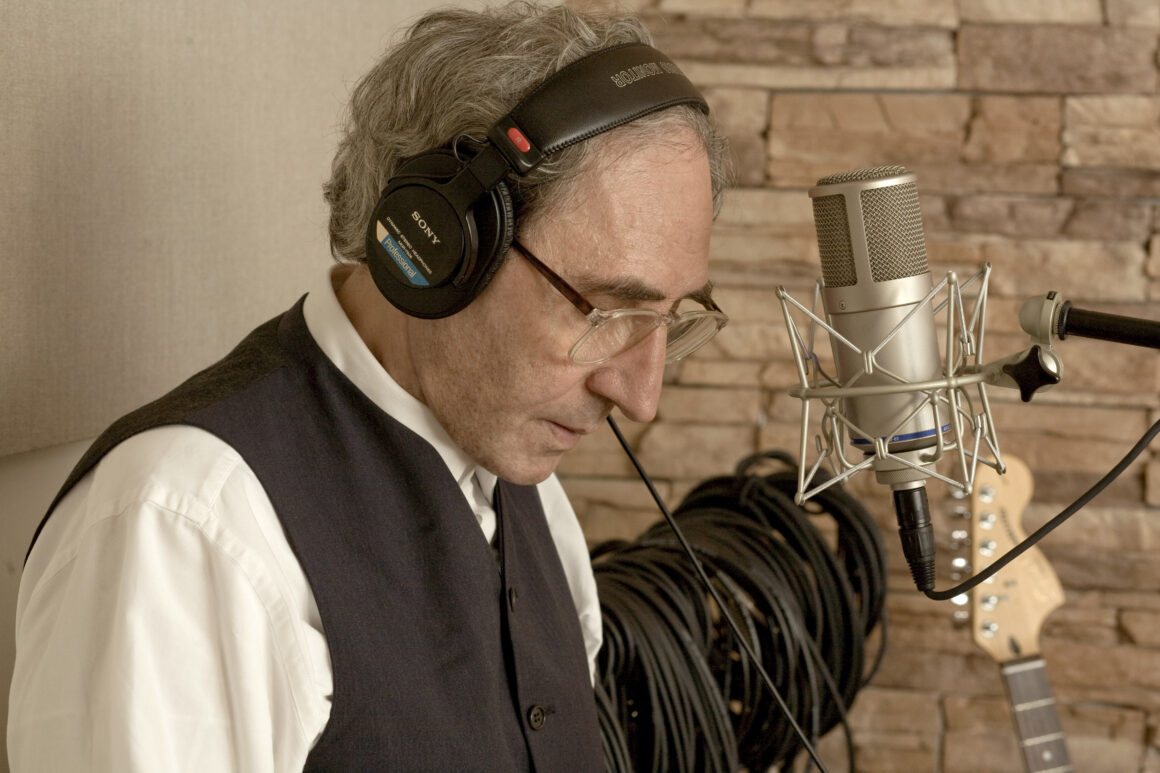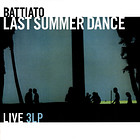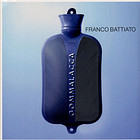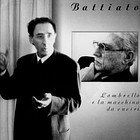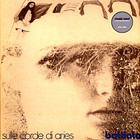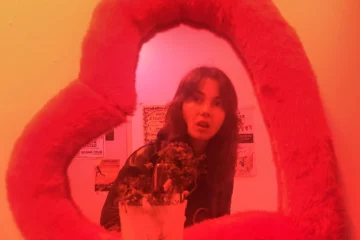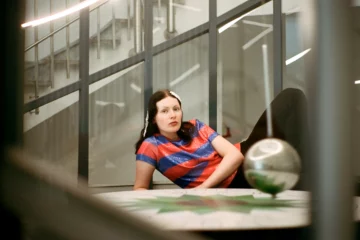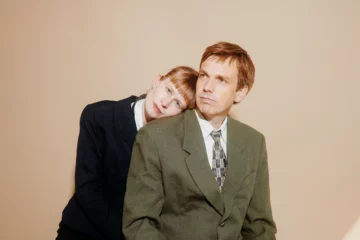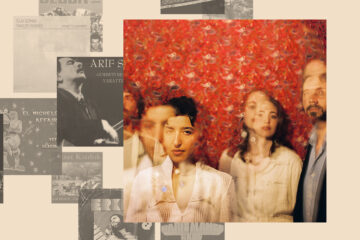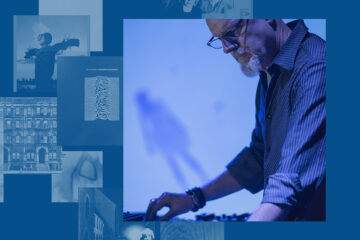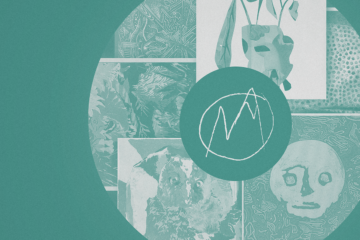Whoever wants to understand the wonderfully weird world of Franco Battiato should probably start with his relationship with religion. Asked in an interview with Germany’s taz whether he considered himself to be a Buddhist, the Italian megastar emphatically confirmed this—and then went on to also identify himself as a Hindu, a Christian, a Jew, a Sufi, and much more. The composer, cantautore (singer/songwriter), record producer, filmmaker, and painter’s syncretic spirituality is mirrored in his work as a prolific artist who won the approval of Nurse With Wound, Karlheinz Stockhausen, and the Italian public and released kitschy love songs, path-breaking prog rock records, works of exuberant avant-garde music, and some of the most eternal pop hits in Italian history.
Battiato was born on the 23rd of March 1945 as the son of a fisherman and a seamstress in Sicily. Following the death of his father, he first relocated to Rome in 1964 and then to Milan where he tried to make a name for himself with a guitar and a selection of »pseudo-baroque, fake ethnic music,« as he would later call it. It was enough to get some music industry people interested, and in 1965 Battiato debuted as a recording artist. His first releases saw him cover sappy love songs before he co-wrote his debut single »La Torre« in 1967. At the same time, he co-founded the duo Gli Ambulanti, with whom he would try to make a name for himself as a protest singer before swiftly abandoning the project and following a more »romantic« path lyrically after signing to Philips.
While Battiato was able to celebrate some modest successes during the late 1960s and even performed »La Torre« on the popular TV show Diamoci del tu, already showcasing the awkward dance moves that would later become an involuntary trademark, it was also a time of setbacks. He recorded his debut album in 1969, but the project was shelved. This led to a crisis that turned out to be a productive one. »I went in search of other genres of music,« he said in a 2006 interview. »I found myself imagining an electronic journey, even though I didn’t really know what electronic music was.« After reading about the EMS VCS 3 synthesizer, he travelled to London to buy two. It turned out to be a fateful decision to do so.
»Prog and avant-garde records ended up in the charts, pop music was banned«.
Fabio Zuffanti
Battiato had followed the two major trends of the mid to late 1960s, romantic pop and the Bob Dylan-inspired protest music, but was soon able to capture the zeitgeist instead of simply copying it. Italy had just experienced the so-called Autunno Caldo, a series of strikes primarily in the industrial centres of Northern Italy. The rising leftist sentiment and counter-cultural attitude of the time also affected culture. »Prog and avant-garde records ended up in the charts, pop music was banned,« journalist and Battiato biographer Fabio Zuffanti said about this period. The artist found kindred spirits through the Bla Bla label, where he first released music as part of the prog-inspired hard rock band Osage Tribe.
The 1970s: A Beautiful Mess
Franco Battiato’s debut album proper »Fetus« (»Foetus« in international markets) for Bla Bla remains one of his most well-known records outside of Italy and today is generally considered an early masterpiece of the burgeoning prog rock scene. Inspired by Aldous Huxley’s dystopian »Brave New World« and characterised by Battiato’s infatuation with the VCS 3, the album merges rock and pop songwriting with an anarchic approach that threw scientific formulas, recordings of former US president Richard Nixon and Johann Sebastian Bach pieces into the mix. It was a beautiful mess that merged the avant-garde techniques of musique concrète with ideas from electronic and cutting-edge rock music. It also was a commercial failure.
Undeterred, Battiato further ventured down this path in the following year with »Pollution« and »Sulle corde de Aries.« They established him as a composer working between high-concept art and low-brow music and won him the approval of Nurse With Wound, who included him in their legendary 1979 list of adventurous artists and albums, and even Karlheinz Stockhausen. After dedicating his 1974 album »Clic« to the German composer—who at the time named Battiato as one of the two popular music acts that he found interesting, the other one being Kraftwerk—the Italian artist even travelled to Stockhausen’s Kürten residence. »He gave me a score and told me, ›Here, sing this,‹ but I couldn’t read sheet music.«
The awkward encounter led the autodidact to study music theory and composition, and just three years later he won an award named after Stockhausen for »L’Egitto prima delle sabbie,« his eighth solo album. However, Battiato’s story once more didn’t move in a straight line. Even while he was making records that sounded like Tangerine Dream were given access to Cologne’s Studio für Elektronische Musik for a few drunken nights, he was still active in the realms of rock and pop music. As a member of Telaio Magnetico, he made drony psych-rock that sounded like a cross between the Taj Mahal Travellers, the Master Musicians of Jajouka, and early Pink Floyd, while his only single under the pseudonym Astra in 1978 saw him embrace art rock.
It was this single that announced another change of style, or rather priorities in Battiato’s life as a composer and musician. His 1979 album »L’era del cinghiale bianco« created a »scandal,« as he later put it in an interview—this was rock music, precisely the kind of stuff that he had seemed to have strayed away from with every previous solo album. It became his first major commercial success. Almost one and a half decades after first trying to make it big in the music business, Battiato finally succeeded. But he didn’t enjoy it much. »With success came the fans: one night in a hotel I woke up and found that they had let people into my room to watch me sleep. I wanted to stop.« He didn’t, and instead became even more famous.
The 1980s: Anything or Everything
The two albums that catapulted Franco Battiato to mega stardom were released at the beginning of a new era. Starting in 1968, the so-called Anni di piombo saw the country plunge further and further into social chaos as acts of political violence and terrorism by radical left-wing and far-right organisations dominated daily life. And what did Battiato do? He released an album with the ambiguous title »Patriots« with a song about life in Soviet Russia on it. Indeed, throughout his life Battiato’s political stance seemed as obscure as his spiritual leanings—he was obviously averse to consumerism and occasionally supported left-wing causes, but was also criticised for allegedly spreading right-wing ideas.
»A fifteen-year-old girl wrote to me saying that she doesn’t care what I say, that she loves it anyway. I love that, because I don’t want to say anything, or everything«.
Franco Battiato
The fact that Battiato was hard to pigeonhole politically (and otherwise) became one of the defining features of his work that mixed things up even more chaotically on his 1981 hit album »La voce del padrone.« Its lead single »Bandiera bianca« takes its title from an Arnaldo Fusinato poem about the surrender of Venice to the Austrian empire during the first Italian independence war. It also quotes Bob Dylan, Theodor W. Adorno, and The Doors. The renaissance man Battiato fully embraced postmodernism, two years after Jean-François Lyotard had coined the term. Or, as he put it: »A fifteen-year-old girl wrote to me saying that she doesn’t care what I say, that she loves it anyway. I love that, because I don’t want to say anything, or everything.«
The 1980s were marked by Battiato’s on-going collaboration with composer Giusto Pio as well as his own work as a songwriter for singer Alice, with whom he also participated at the Grand Prix Eurovision de la Chanson in 1984. Having already produced records for artists such as Raul Lovisoni and Francesco Messina as well as Michele Fedrigotti and Danilo Lorenzini, Battiato went on to work with Italian superstar Milva on two albums and collected his first credits as director of his own music videos while immersing himself further in the theories of G. I. Gurdjieff, the teachings of Sufi mysticism, and the Arabic language. He did all this while being one of the most beloved and commercially successful of all cantautori.
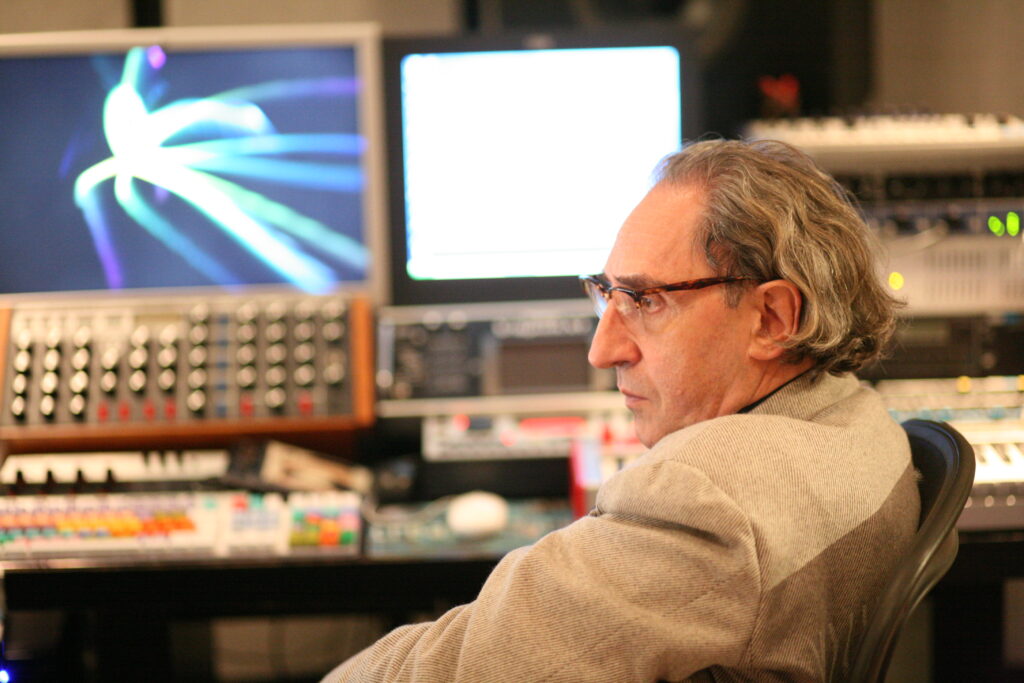
It is impossible to overstate the impact Battiato had on Italian culture—tune into any radio station during summer and you will hear 1981’s »Cuccurucucù.« However, it’s hard to explain his appeal to foreigners. He was not a great singer, certainly an awkward dancer, he namechecked Nietzsche in pop songs—and made the kind of eclectic, imaginative, and unconventional music that drives record label execs up the wall and leaves the general public absolutely unmoved. But even when he started mixing classical music and pop such as on the classic »Fisiognomica« from 1988, Italians continued to embrace his voracious weirdness. And they called him Il Maestro, The Master.
After the 1980s: Everything All at Once, All of the Time
In the following decades, Battiato picked up painting, started collaborating with philosopher Manlio Sgalambro as his lyricist, and seamlessly moved between classical and avant-garde idioms and the structures of pop music whenever he wasn’t embracing both at the same time. The rock ballad »La cura« from 1997 became another mega hit, and just three years later he presented his audience with »Campi magnetici« just three years later, an album that merged breakbeats, noise, operatic singing, and a chanson. He also became a filmmaker, his debut »Perdutoamor« being an autobiographical drama and his second a movie about Ludwig van Beethoven’s final years, starring Alejandro Jodorowsky of »Holy Mountain« fame.
After a slew of cover albums—the »Fleurs« series—as well as rare original studio records such as »Apriti sesamo« in 2013, Battiato played his final concert in 2017, around half a century after he had first entered the stage. »Torneremo ancora« (»We will come back once more«), a collection of some of his greatest hits performed by Il Maestro and the Royal Philharmonic Concert Orchestra, was his last album in 2019. He died in his Sicily home in May 2021, two months after his 76th birthday. Two Catholic priests whom Battiato had befriended led the funeral service, however that probably doesn’t mean that he didn’t also remain a Buddhist, a Hindu, a Christian, a Jew, a Sufi, and much more until the very end. After all, he was everything all at once—all of the time.

